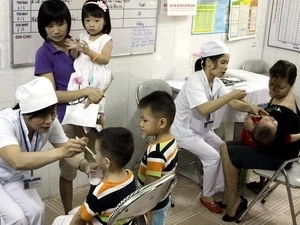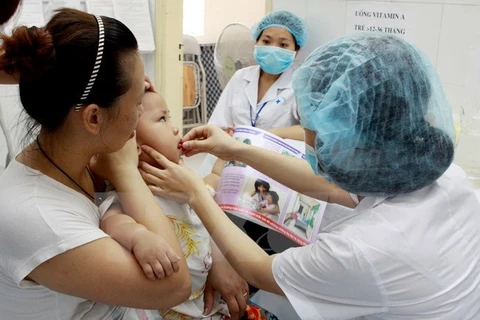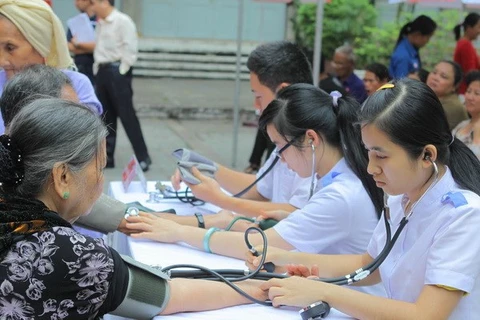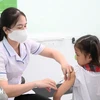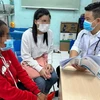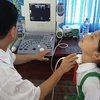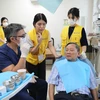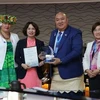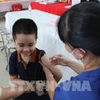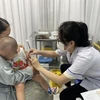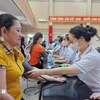World Vision in Vietnam donated five million deworming tablets Albendazole to the National Institute of Malariology Parasitology and Entomology (NIMPE) at a ceremony in Hanoi on August 25.
The donation aims to prevent worm infections by periodic deworming of more than five million women of child-bearing age living in 16 provinces of Vietnam. These provinces are Dien Bien, Son La, Cao Bang, and Yen Bai, as well as Hoa Binh, Lao Cai, Ha Giang and Thai Nguyen, besides Bac Ninh, Nam Dinh, Thanh Hoa, Ha Tinh, and also Dak Lak, Quang Nam , Binh Phuoc and Tay Ninh.
"Worm infections have various adverse health impacts such as anemia, micro-nutrient deficiencies, malnutrition and hepatobiliary disease. As a result, physical and mental development of the person is affected," NIMPE Director Tran Thanh Duong said.
"Children and women of child-bearing age need to take deworming medicines once every six months in order to prevent diseases caused by worm infections as they are at high risk," Duong said.
NIMPE is responsible for drug distribution, monitoring and evaluation of the process of mass drug administration. In co-operation with World Vision, NIMPE will conduct behavioural change communication activities during the MDA through grassroots loudspeaker systems to raise awareness about preventing worm infections and the importance of deworming among women.
NIMPE's latest statistics show that nearly half of the total population in Vietnam has worm infections, with the infection rate in the North-midland and mountainous regions being about 65.3 percent.
Another survey by NIMPE found that 60 to 80 percent of women of child-bearing age in Northwestern Vietnam have hookworm infection, resulting in anemia.
Since 2010, about four million Vietnamese women have received deworming drugs each year. Most of the drugs have been provided by World Vision and the World Health Organisation.-VNA

